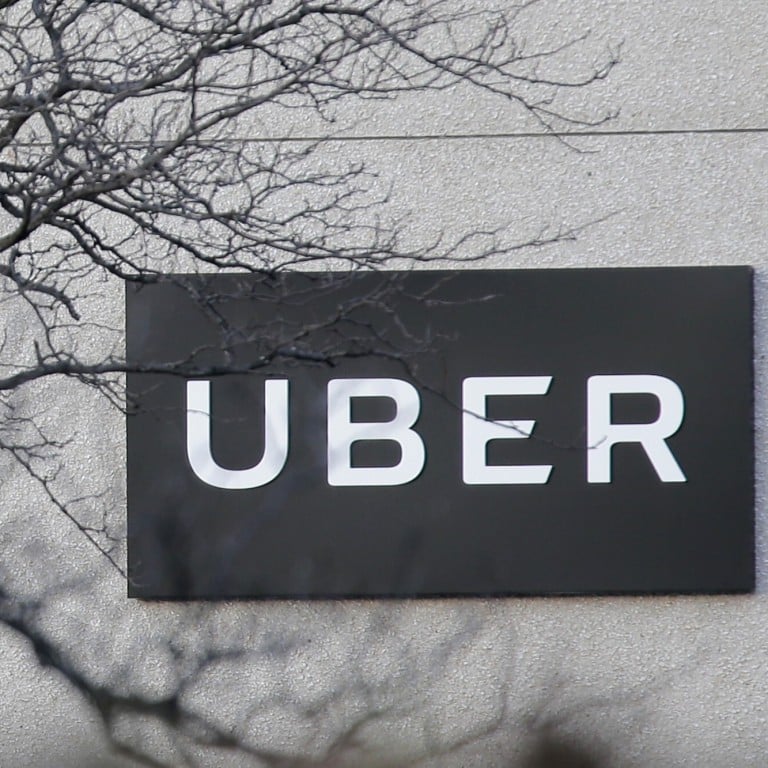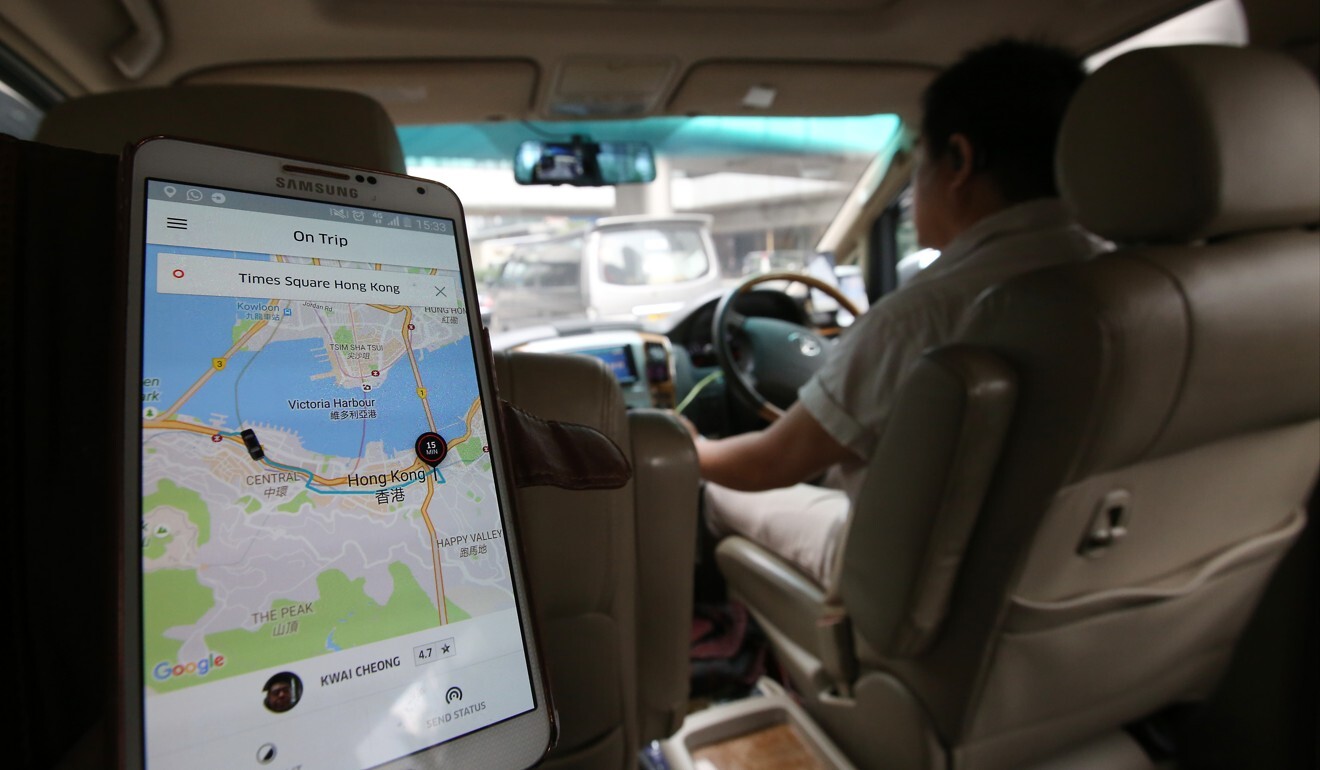
Uber eyes headquarters move to Hong Kong – provided city first changes regulations to legalise service, source says
- ‘Industries like Uber are beneficial to Hong Kong’s economic growth, but the existing regulations are outdated’, tech sector figure argues
- But amid strong pushback from taxi industry, government has so far remained firm in cracking down on the illicit ride-hailing service
The US-based firm is weighing the potential move as it looks to follow through on plans to relocate its Asia-Pacific headquarters from Singapore in the next 12 months after taking a beating amid the Covid-19 pandemic, a reliable source told the Post.
Uber to cut quarter of global workforce and scale back investment
The source said a move to Hong Kong would serve as a vote of confidence in the city’s political and economic future as it attempts to recover from the double blow of protest-driven social unrest and the subsequent Covid-19 outbreak, which saw many businesses shut down or downsize.

“The move would be a substantial investment for Uber and produce a positive synergistic effect on the city’s economy amid the coronavirus-ravaged downturn,” the source said.
“It would also boost investor confidence in Hong Kong. But to make it possible, the government needs to provide a business-friendly environment where Uber could see the future – a regulatory regime for Uber’s ride-hailing business.”
The source said Hong Kong had been a profitable market for Uber, which explained the firm’s reluctance to quit the city despite the government’s repeated crackdowns on its ride-hailing service.
Uber Hong Kong, which has operated in the city for six years, is expected to reveal its future strategies next Tuesday. Its popular Uber rides, which have faced stiff resistance from the local taxi industry, have been deemed illegal for carrying paying passengers without a hire-car licence.
Top Hong Kong court allows Uber drivers to challenge definition of a traffic law
“After six years serving Hong Kong and its people, Uber has arrived at an important moment in our history in Hong Kong. We … will make a major announcement on Uber’s long-term business road map and vision for the city,” the company said in a press conference invite.
In 2019, a year after merging its Southeast Asia operations with regional rival Grab, Uber opened its Singapore office to oversee operations in nine Asia-Pacific markets including Australia, India, Japan, South Korea, Taiwan and Hong Kong. At the time, the office had about 165 employees.
According to the company’s first-quarter earnings call with investors on May 7, its Hong Kong business posted a strong rebound, achieving 70 per cent of its pre-Covid-19 bookings despite the company’s overall rides business dropping 80 per cent globally in April.

The firm also announced plans to lay off about 3,000 people globally and stop some of its investments unrelated to its core ride-hailing and delivery businesses.
The controversial tech firm has been calling for a partnership with the Hong Kong government to address the city’s mobility future. Currently, a population of more than 7.5 million is served by 18,163 licensed taxis. However, the government has so far stood firm in cracking down on the service, with proposed increases in penalties for drivers caught providing illegal rides.
In an article in March, Uber Hong Kong general manager Estyn Chung said the company was ready to make new investments in the city, but that it would be next to impossible without a modern regulatory framework for ride-sharing.
“Hong Kong has not updated its transport rules to support ride-sharing. Without a modern regulatory framework in which businesses like Uber can operate, we will be unable to make the investments needed to create more jobs for Hong Kong,” he wrote.
Uber tie-up with Hong Kong taxis pays off as ride-hailing requests more than double
“We are ready to make new investments, change the way we move, and partner with the government to let people tap into the sharing economy … For us, this starts with regulation.”
Francis Fong Po-kiu, honorary president of the Hong Kong Information Technology Federation, made the case for compromise on Wednesday, saying it was time for the government to resolve the deadlock over Uber by relaxing the present regulatory regime.
“The fact is, some innovative industries like Uber are beneficial to Hong Kong’s economic growth, but the existing regulations are outdated. The government should seek ways to expand the presence of innovative industries,” he said.
“There is a real demand for ride-hailing services. The government should relax the regulatory regime to allow Uber to legally operate in Hong Kong. But it should also find ways to assuage the discontent of the taxi sector.
“For example, it could require Uber to pay a tax and make other requirements, while providing some form of subsidies for taxis to offset their loss of income.”
Help us understand what you are interested in so that we can improve SCMP and provide a better experience for you. We would like to invite you to take this five-minute survey on how you engage with SCMP and the news.

